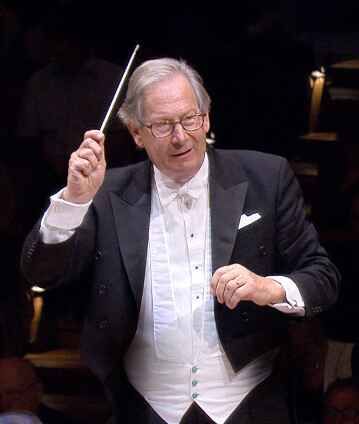John Eliot Gardiner conducts Stravinsky

After an absence of 14 years, Sir John Eliot Gardiner returned to the Berliner Philharmoniker with this Stravinsky evening. The focus is on the opera oratorio Oedipus Rex, whose archaic force unmistakeably inspired Carl Orff in composing his Carmina Burana. The ballet Apollon musagète also harks back to older music – but in its bright Baroque grace conjures up an entirely different world of sound.
Igor Stravinsky created a central work of neoclassicism with Oedipus Rex – a ritual drama with a Latin text that tells the story handed down by Sophocles of the desperate hero of ancient times who unwittingly kills his father and without realizing it marries his mother. Kurt Weill pointed out the “form in the style of an oratorio”: the composition consists of recitative and arias, as well as duets and choral pieces with a static plot – “the categorical rejection of the form of the music drama” and “the inclusion of a purely vocal operatic style in which the action, drama and optical movement are completely repressed in favour of a purely musical form”. (Stravinsky declared: “The strict form of this language has in and of itself so much expressive value that it is not necessary to enhance it through the music.”)
Sir John Eliot Gardiner is an internationally renowned representative of historically informed performance practice with the broadest of repertoires extending far into the 19th and even 20th centuries. He has also repeatedly devoted himself to the works of Stravinsky with music that moves between genres. A neoclassicist masterpiece is performed at the beginning of the concert as well: Stravinsky’s Apollon musagète (Apollo, leader of the muses), in which after a prologue that depicts the birth of the ancient God with extremely delicate music, there is a series of allegorical dances “in the traditional style of the classical ballet (Pas d’action, Pas de deux, Variations, Coda)” (Stravinsky).
Finally, Apollo leads the muses onto Mount Parnassus: “In admiration for the linear beauty of the classical dance,” the composer stresses, “I decided for the strict form of ballet, and thought first and foremost of the ‘ballet blanc’, in which in my opinion the essence of this art manifests itself most clearly.” The renunciation of dissonant harshness corresponds to the plot without any conflict by using a pure string orchestra; the contrast in instrumental colours that is found otherwise is substituted for by dynamic contrasts, a process Stravinsky had already tested in his Pulcinella ballet.
© 2016 Berlin Phil Media GmbH
Related interview
Artists
Our recommendations
- Sir Simon Rattle and the Orchestra Academy perform Mahler’s “Das Lied von der Erde”
- Daniel Harding conducts “Thus spoke Zarathustra”
- Simon Rattle conducts Ginastera and Britten
- A Mozart evening with Daniel Harding
- Claudio Abbado conducts a Beethoven Gala at the 1991 New Year’s Eve Concert
- Mikko Franck conducts Schumann’s “Paradise and the Peri”